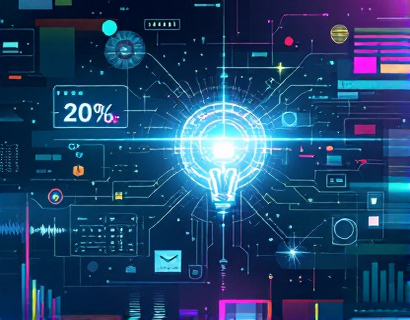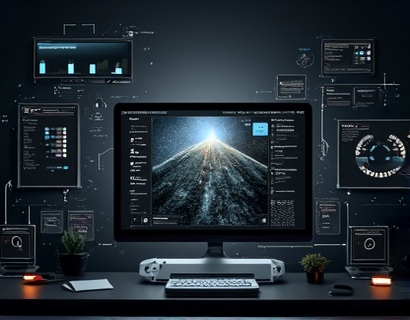Empowering Lifelong Learning: Access to a Rich Collection of Interactive Educational Resources and Tools
In today's rapidly evolving world, the importance of continuous learning cannot be overstated. The ability to adapt and acquire new knowledge and skills is crucial for personal and professional growth. For students and lifelong learners, accessing a rich collection of interactive educational resources and tools is essential to stay informed, engaged, and competitive. This article explores the significance of having a comprehensive digital library that offers a vast array of accessible learning resources, designed to foster personal growth and a passion for lifelong learning.
The digital age has revolutionized the way we access and consume educational content. Gone are the days when learning was confined to traditional classrooms and static textbooks. Today, a wealth of interactive courses, articles, and multimedia resources are available online, catering to diverse learning styles and preferences. A well-curated digital library can serve as a powerful tool for individuals seeking to expand their knowledge and enhance their educational journey.
Benefits of a Comprehensive Digital Library
A comprehensive digital library offers numerous benefits for students and lifelong learners. Firstly, it provides unparalleled access to a wide range of educational materials. Whether it's in-depth articles, comprehensive e-books, or interactive courses, learners can explore various subjects and topics at their own pace. This flexibility is particularly valuable for those with busy schedules or diverse learning needs.
Secondly, a digital library fosters a love for learning by making education more engaging and interactive. Traditional learning methods often rely on passive consumption of information, whereas interactive resources encourage active participation and critical thinking. This approach not only enhances understanding but also makes the learning process more enjoyable and motivating.
Curated Selection of High-Quality Resources
A key feature of a valuable digital library is the curation of its content. A well-organized platform ensures that learners have access to high-quality, relevant, and up-to-date materials. This curation process involves careful selection and review by subject matter experts, ensuring that the content meets rigorous standards of accuracy and relevance.
The curated selection extends beyond just the quantity of resources. It also focuses on diversity, covering a broad spectrum of subjects and disciplines. From science and technology to arts and humanities, learners can find materials that cater to their specific interests and career goals. This diversity not only enriches the learning experience but also helps in developing a well-rounded perspective.
Interactive and Multimedia Resources
One of the most significant advantages of a digital library is the availability of interactive and multimedia resources. Traditional textbooks are often limited to text and static images, whereas digital platforms can incorporate videos, simulations, quizzes, and interactive exercises. These tools not only make learning more engaging but also cater to different learning styles, such as visual, auditory, and kinesthetic.
For instance, interactive simulations can help students understand complex scientific concepts by allowing them to manipulate variables and observe outcomes in real-time. Similarly, video lectures and tutorials can provide visual explanations that complement textual information, making the content more accessible and easier to grasp.
Personalized Learning Paths
A modern digital library goes beyond just providing resources; it offers personalized learning paths tailored to individual needs and goals. Through advanced algorithms and user data, the platform can recommend relevant materials based on a learner's preferences, progress, and performance. This personalized approach ensures that learners are always challenged appropriately and can focus on areas where they need improvement.
Personalized learning paths also support lifelong learners who may have varying levels of expertise and different learning objectives. Whether a learner is a beginner looking to gain foundational knowledge or an advanced learner seeking to deepen their understanding, the platform can adapt to their needs, providing a seamless and effective learning experience.
Community and Collaboration
Learning is often a social activity, and a digital library can facilitate this by creating a community of learners and experts. Discussion forums, chat groups, and collaborative projects enable learners to connect, share ideas, and work together on educational endeavors. This community aspect not only enhances the learning experience but also provides a support network for learners to motivate and inspire each other.
Moreover, collaboration with experts and peers can lead to valuable insights and new perspectives. Learners can engage in peer review, receive feedback on their work, and contribute to the collective knowledge base. This collaborative environment fosters a sense of belonging and shared purpose, making the learning journey more fulfilling.
Accessibility and Inclusivity
Accessibility is a critical component of a comprehensive digital library. The platform should be designed to be user-friendly and accessible to individuals with diverse abilities and backgrounds. This includes providing options for text-to-speech, adjustable font sizes, and compatibility with assistive technologies. By ensuring inclusivity, the platform can reach a broader audience and promote equal access to education.
Inclusivity also extends to content that reflects diverse cultures, perspectives, and experiences. A well-curated digital library should include materials that represent a wide range of voices and viewpoints, fostering a more inclusive and equitable learning environment. This diversity not only enriches the educational content but also helps learners develop a more nuanced and empathetic worldview.
Continuous Updates and Innovations
The field of education is constantly evolving, and a digital library must keep pace with these changes. Regular updates and the introduction of new resources ensure that learners have access to the latest information and cutting-edge tools. This commitment to innovation is essential for maintaining the platform's relevance and value.
Additionally, incorporating feedback from users can help refine and improve the platform. By actively listening to the needs and suggestions of its users, the platform can continuously enhance its offerings and better serve the learning community. This user-centered approach not only improves the platform's functionality but also builds trust and loyalty among its users.
Conclusion
In conclusion, a comprehensive digital library that offers a rich collection of interactive educational resources and tools is an invaluable asset for students and lifelong learners. It provides unparalleled access to high-quality, diverse, and engaging content, supported by personalized learning paths, interactive features, and a collaborative community. By embracing such a platform, learners can empower their educational journey, foster a love for learning, and achieve their full potential in an ever-changing world.










































